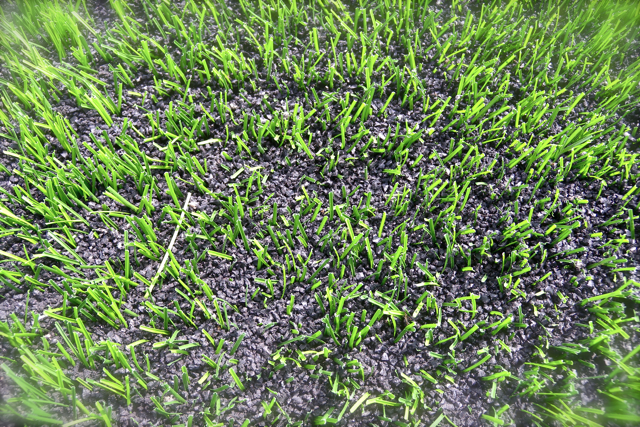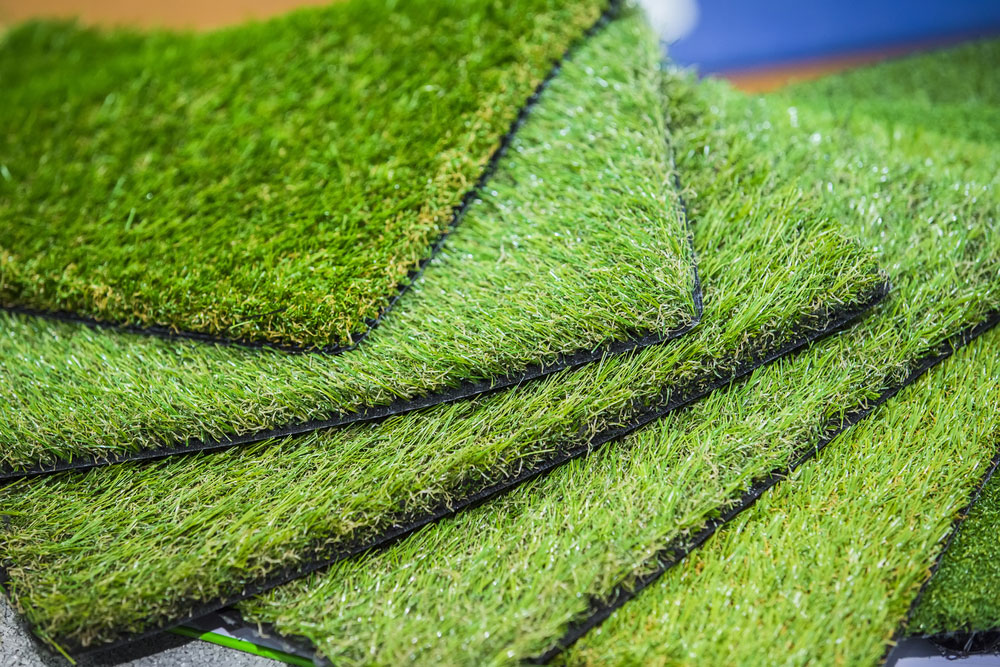Get the Leading Turf Installation Phoenix AZ Services for Your House or Business
Get the Leading Turf Installation Phoenix AZ Services for Your House or Business
Blog Article
Delve Into the Environmental Perks of Opting for Synthetic Grass Solutions
The adoption of synthetic lawn solutions provides an engaging chance to resolve pressing environmental obstacles. By substantially decreasing water use and decreasing the application of damaging chemicals, these options not only advertise sustainable landscape design however likewise safeguard regional ecological communities. Additionally, the reduced carbon footprint connected with reduced maintenance activities adds to an extra lasting method to land administration. The effects of these benefits expand past plain preservation initiatives, increasing concerns concerning their long-lasting effect on habitat preservation and overall environmental balance. Discovering these measurements reveals an intricate interaction worth taking into consideration.
Water Preservation Perks
One of the most substantial advantages of synthetic grass is its capacity to save water. Conventional lawn yards need significant irrigation, particularly in locations susceptible to drought or water constraints. In contrast, artificial grass does not need watering, dramatically lowering the general demand for water resources. This function is specifically useful in arid regions where water deficiency is a pushing issue.
By removing the demand for normal watering, artificial turf adds to lasting landscape methods and aids minimize the environmental effect of extreme water intake. The preservation of water prolongs to the decrease of runoff, which can lead to dirt erosion and river air pollution.
In addition, the setup of synthetic grass enables districts and property owners to assign water sources extra effectively, concentrating on important uses such as alcohol consumption water and agriculture. The change in the direction of fabricated turf not just advertises liable water usage however additionally aligns with broader ecological goals aimed at maintaining natural deposits.
As areas significantly prioritize sustainability, the water conservation benefits of fabricated grass offer an engaging case for its fostering in residential and commercial landscape design projects.
Minimized Chemical Use
The shift to man-made grass substantially reduces the reliance on chemical treatments frequently used in natural lawn upkeep. Conventional grass management usually includes the application of herbicides, plant foods, and chemicals to advertise development and control bugs. These chemicals can posture threats to human health, local wildlife, and the environment, adding to dirt and water contamination.
On the other hand, man-made lawn eliminates the requirement for these unsafe compounds. As soon as set up, it needs very little upkeep, mainly being composed of routine cleansing and infrequent infill replenishment. This decrease in chemical use not just profits the immediate setting yet additionally adds to more comprehensive eco-friendly stability. By minimizing the release of artificial compounds right into the environment, synthetic turf promotes much healthier dirt and water systems.
Moreover, the absence of chemical overflow associated with artificial lawn installments aids shield regional waterways from pollution, supporting aquatic life and keeping biodiversity. Turf installation phoenix az. As communities increasingly prioritize lasting methods, selecting artificial turf offers a feasible solution that straightens with ecological conservation goals. Through this shift, home proprietors can delight in rich green rooms without jeopardizing eco-friendly wellness, paving the way for an extra sustainable future
Reduced Carbon Impact

In addition, the installment of man-made lawn can lead to substantial water preservation. Natural lawns call for substantial amounts of water for watering, which not just contributes to the carbon footprint associated with water extraction and therapy yet also stress local water sources. In contrast, fabricated turf requires minimal upkeep, requiring no watering, thereby considerably minimizing water use and its associated power expenses.
Additionally, the durability of artificial grass adds to its reduced carbon effect. With a life-span of up to 15 years or even more, the requirement for regular replacements is decreased, leading to much less waste and lower power intake in production and getting rid of standard yard alternatives. On the whole, synthetic grass provides a sustainable option for eco aware landscaping.
Environment Conservation
Habitat preservation is an important factor to consider in the debate over landscaping selections, especially when contrasting synthetic grass to natural yard. Natural yard lawns typically call for comprehensive maintenance, consisting of the usage of pesticides, plant foods, and herbicides, which can adversely impact regional ecological communities. These chemicals can seep right into the soil and waterways, damaging indigenous plants and animals and disrupting neighborhood habitats.
Fabricated turf gets rid of the demand for harmful chemicals, consequently shielding close-by wild animals and keeping the integrity of bordering ecosystems. The installation of synthetic turf can lead to the conversion of former grass locations right into even more biodiverse landscapes, such as pollinator yards or indigenous plant areas, which can support local wildlife.
Inevitably, the shift to artificial turf not only conserves water and lowers maintenance initiatives however additionally promotes a more harmonious connection in between human activities and the natural setting, promoting environment preservation while doing so.
Long-Term Sustainability
Lasting sustainability is a critical next page consider evaluating the benefits of man-made lawn over traditional grass yards. One of the most significant advantages of fabricated lawn is its sturdiness; it can last up to 15-20 years with marginal upkeep, whereas natural grass calls for frequent reseeding and substitute. This long life lowers the requirement for consistent resources, such as water, plant foods, and pesticides, which are vital for keeping a healthy and balanced yard yard.
In addition, synthetic grass contributes to a decrease in carbon exhausts related to grass treatment equipment. Conventional yards typically require gas-powered mowers, trimmers, and blowers, all of which add to air contamination. Arizona turf. In contrast, synthetic grass gets rid of the requirement for such devices, promoting a cleaner environment
Additionally, the manufacturing of artificial grass progressively uses recycled materials, enhancing its sustainability account. As makers adopt green techniques, the environmental impact of synthetic lawn remains to reduce.

Final Thought
The adoption of artificial lawn solutions offers considerable ecological benefits, consisting of significant water preservation, decreased dependence on unsafe chemicals, and a reduced carbon footprint. In addition, synthetic grass aids in protecting natural habitats by lessening land disruption and promoting long-lasting sustainability through the use of sturdy materials. Jointly, these aspects underscore the possibility of synthetic grass to add positively to environmental health and provide a sensible option to traditional landscaping practices in a significantly resource-conscious world.
In comparison, fabricated grass does not need watering, considerably reducing the overall need for water resources. By lessening the launch of synthetic dig this compounds into the ecosystem, man-made lawn advertises much healthier soil and water systems.
Furthermore, the installment of synthetic lawn can result in significant water conservation. In comparison, fabricated lawn needs marginal maintenance, calling for no watering, thereby dramatically minimizing water use and its associated energy costs.

Report this page